The Cancer Prevention Research Conference
Early Bird Registration Deadline: April 12, 2024 (Now Closed)
Registration Deadline: June 11, 2024
Welcome!
Welcome!
We are thrilled to welcome you to the Cancer Prevention Research Conference in Boston!
This year, the American Cancer Society, the National Cancer Institute, and Cancer Research UK are holding a new annual conference on prevention research, June 25-27, in Boston.
The event will bring together researchers from discovery biology through translational and behavioural science to population and implementation research to create a thriving multidisciplinary cancer prevention research community, spark new collaborations and ideas, and advance cancer prevention.
Our goal is to help create a new-look cancer prevention research community, and to showcase research to better understand cancer aetiology, risk factors, intervention development and implementation, and health inequalities in cancer prevention. The conference will be built on a philosophy of using advances in mechanistic understanding to inform more effective ways of preventing cancer.
Our conference co-chairs John Burn (Newcastle University), Tim Rebbeck (Dana-Farber/Harvard Cancer Center) and Thea Tlsty (University of California, San Francisco) are shaping the program to share the latest thinking and results, and address opportunities within the field.
This is an exciting opportunity for researchers across disciplines to engage in, learn about and discuss the latest concepts in cancer prevention research.
We invite you to register now and start making plans to join us in Boston in June!
If you have any questions, please don’t hesitate to ask.
We can’t wait to welcome you to Boston!
Ticket Prices
Early bird - by April 12, 2024
Industry Delegates- $750
Academic/Clinician/Not for Profit- $350
Student/Post-Doc/Fellow- $250
Regular Pricing - after April 12, 2024
Industry Delegates- $900
Academic/Clinician/Not for Profit- $450
Student/Post-Doc/Fellow- $350
Abstract Applications
We're giving attendees the opportunity to showcase their work and present a poster as part of the conference programme. A limited number of lightning talks will be selected from the submitted abstracts, with priority for PhD students and postdocs.
Abstracts should be submitted under one of the conference themes:
- Mechanistic insights informing prevention strategies
- Health inequities in cancer incidence and prevention
- Deepening understanding of risk
- Precision Prevention in high risk populations
Deadline for abstracts is April 12, 2024
Applicants will be notified of acceptance from May 12, 2024. The presenting author of the abstract must register and pay the registration fee.
Submit your abstract by clicking here
* Poster viewing will take place throughout the conference (please note the date and time is subject to change).
Agenda
Take a look at what we have planned for our event!
Keynote Address
Speaker: Karen Canfell, The Daffodil Centre (joint venture between Cancer Council NSW and The University of Sydney)
Mechanistic insights informing prevention strategies
Co-chairs: Frances Balkwill, Queen Mary University London | Catriona Jamieson, University of California San Diego
Confirmed speakers:
- Ahmed Ahmed, Oxford University
- Wendy Garrett. Harvard University
- Thea Tlsty, University of California San Francisco
Health inequities in cancer incidence and prevention
Co-chairs: Salvatore Vaccarella, International Agency for Research on Cancer | Chanita Hughes Halbert, USC Norris Comprehensive Cancer Center
Confirmed Speakers:
- Ophira Ginsburg, National Cancer Institute
- Tiffany Carson, Moffit Cancer Center
- Smilie Obeng-Gyasi, Ohio State University
Panel session: the way forward for obesity, cancer risk and prevention
Chair: Giles Yeo, Cambridge University
Confirmed speakers:
- Joyce Slingerland, Georgetown University
- LIn Yang, Alberta Health Services
Deepening understanding of risk
Co-chairs: Sapna Syngal, Dana Farber Cancer Institute | Rudolf Kaaks, DKFZ German Cancer Research Centre
Confirmed speakers:
- Neeha Zaidi, John Hopkins University
- Tuya Pal, Vanderbilt University Medical Center
- Anneke Lucassen, Oxford University
- Mathias Heikenwälder, DKFZ
Keynote address
Speaker: Dipak Panigrathy, Dana Farber/Harvard Cancer Centre
Debate session: Chemoprevention is dead
Decades of research on preventive intervention with drugs or compounds taken from dietary sources have failed to produce a clear win. We should stop trying and move on to other modalities of intervention.
Chair: David Crosby, Head of Prevention and Early Detection, Cancer Research UK
Confirmed speakers:
- Karen Brown, University of Leicester
- Scott Lippman, University of California San Diego
Panel session: what does the emerging biological understanding of very early dissemination mean for cancer prevention?
Chair: Julio A. Aguirre-Ghiso, Albert Einstein College of Medicine
Speakers: Suzanne Marie Ponik, University of Wisconsin-Madison; Hege Elisabeth Giercksky Russnes, University of Oslo
Debate Session: Vaping as a Tool for Smoking Cessation
Chair: David Crosby, Head of Prevention and Early Detection, Cancer Research UK
Confirmed Speakers:
- Vaughan Rees, Harvard University
- Lion Shabab, University College London
Precision Prevention in high risk populations
Co-chairs: Eduardo Vilar-Sanchez, MD Anderson | Sarah Blagden, University of Oxford
Confirmed speakers:
- Christina M Dieli-Conwright, Harvard Medical School
- Sharon Savage, National Cancer Institute, NIH
- Matthias Kloor, Heidelberg University Hospital Institute of Pathology
- Ruth Langley, MRC Clinical Trials Unit, UCL
Fireside chat: how do we incentivise prevention research in a profit-driven world
Speakers: Tim Rebbeck, Harvard School of Public Health | Sir John Burns, Newcastle University
Panel session: Translating cancer prevention strategies within and beyond the clinic
Chair: Andy Chan, Harvard University
Speakers:
- Michael Barry, Harvard University
- Elmar Detering
- Anisha Patel, Patient/Public Advocate
- Jo Waller, Queen Mary University of London
- Robert Winn, Virginia Commonwealth University Massey Cancer Center
Hotel
The American Cancer Society has a block of rooms at the Boston Marriott Copley Place. Please note that the Cancer Prevention Research Conference is unable to cover transportation and lodging expenses, but we do recommend making room reservations at the Boston Marriott Copley Place where our event will take place. After you complete your registration, scroll down on the confirmation page, then click the 'Book Now' button located under Sleeping Rooms to reserve your room in our block!
Boston Marriott Copley Place
110 Huntington Ave, Boston, MA 02116, USA
Hotel stay and incidentals are the responsibility of the attendee and you will be asked to provide a credit card at check-in.
- Check-in should be June 25th
- Check-out should be June 27th
Rate
Taxes
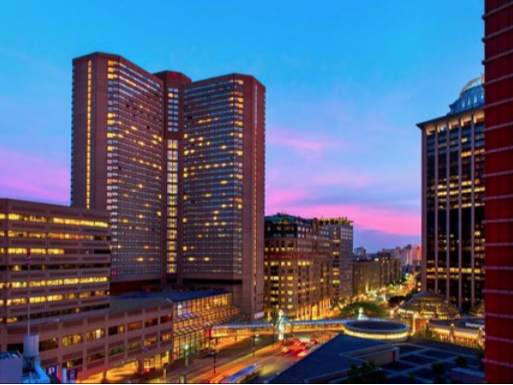
Speakers
Meet our speakers. We can't wait to welcome you to Boston!
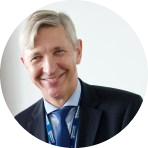
John Burns
Newcastle University
Conference Scientific Co-Chair
Professor Sir John Burn obtained a first class honours degree in human genetics and an MD with distinction from Newcastle University, where he has been Professor of Clinical Genetics since 1991. He was appointed as a consultant specialist in Newcastle in 1984 and led the regional NHS Genetics Service for 20 years.
He helped to create the Millennium landmark Centre for Life, which houses an education, and science centre alongside NHS regional genetics and fertility services and University research. He is chair of the Newcastle based DNA device company QuantuMDx Ltd. He was knighted in 2010 and chosen as one of the first 20 ‘local heroes’ to have a brass plaque on Newcastle Quayside in 2014. He is a Trustee of the European Hereditary Tumour Group, UNESCO NGO Global Variome and HUGO (the Human Genome Organisation) London. He is Vice President of HUGO international.
Former roles include founding Chair the UK Cancer Genetics Group (1997-2003) and of the International Society for Gastrointestinal Hereditary Tumours (InSiGHT 2003-5), President of the European Society of Human Genetics (2006-2007), Chair of the British Society for Genetic Medicine (2011-2013), Lead Clinician, Northern Strategic Health Authority (2010-2014), Non-executive Director NHS England (2014-2018) and Chair of Newcastle Hospitals (2017 -2023).
He leads the Cancer Prevention Programme research group at Newcastle University; CAPP2, an RCT in 16 countries, showed that aspirin reduces by half the risk of colorectal cancer in Lynch syndrome (Burn et al Lancet 2020) and resistant starch supplements reduce the risk of other LS cancers by more than half (Mathers et al Cancer Prev res 2022).
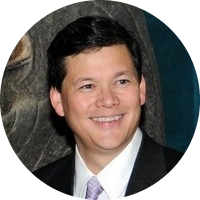
Tim Rebbeck
Harvard School of Public Health
Conference Scientific Co-Chair
After spending 20 years at the University of Pennsylvania, Dr. Rebbeck joined the Dana-Farber Cancer Institute and the Harvard TH Chan School in 2015 as the Vincent L. Gregory, Jr. Professor of Cancer Prevention. Professor Rebbeck serves as the director for the Zhu Family Center for Global Cancer Prevention Harvard TH Chan School of Public Health and the Center for Global Health Equity at Dana Farber Cancer Institute. Professor Rebbeck’s research has contributed to an understanding of the causes and prevention of cancer, with an emphasis on cancer genetics, prostate cancer disparities, and global health equity. He directs large, multicenter studies and international consortia that have identified genetic, molecular, and epidemiological factors associated with cancer risk, outcomes, and disparities. He leads the international Men of African Descent and Carcinoma of the Prostate (MADCaP) network and has led a number of consortia studying hereditary cancer risk and prevention. He also directs the NCI-funded African cancer STARS training program that supports career development for African cancer researchers and project managers. Dr. Rebbeck has mentored over 65 trainees, most of whom hold positions in academia. He has been continuously funded by the NIH since 1994.
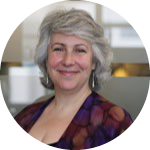
Thea Tlsty
University of California San Francisco
Conference Scientific Co-Chair
Professor Thea Tlsty is leading a Cancer Grand Challenges Programme, and is a Professor of Pathology at the University of California(link is external), San Francisco. She has proposed work that will help understand how chronic inflammation is linked to cancer.
Inflammation is part of the body’s immune response, but its role in the transformation of healthy cells into cancer cells remains poorly understood.
Professor Tlsty’s research group, based in the US, is looking to understand what genetic, epigenetic and functional changes fuel the start and progression of cancers associated with chronic inflammation. More importantly, they are also studying the cells that compose the tissues surrounding where these cancers grow, to understand their influence on cancer development.
Recent work has indicated that signals from the cells surrounding cancers can control whether or not the cancer grows or disappears. Harnessing these signals to prevent or reverse the cancer process would be a powerful new weapon in the therapeutic arsenal. The aim is to determine whether it’s possible to reprogramme the stromal cells (those cells immediately surrounding cancer cells) rather than treating the cancer cells directly.
Professor Tlsty is leading a diverse team of experts involved in the fields of biology, physics and engineering from the US, Canada, the UK and Israel.
The results from this work could lead to new ways to detect and treat cancers caused by inflammation and develop new options to prevent cancer in high-risk patients with chronic inflammatory disease.
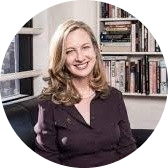
Karen Canfell
University of Sydney
Professor Karen Canfell is the inaugural Director of the Daffodil Centre, a joint venture between the University of Sydney and Cancer Council NSW. She is an epidemiologist, modeller, and a translationally-focused population health researcher. The focus of her program of research is to provide policy-makers with an evidence-base for decision making in cancer control. Her research has impacted cancer-control policy nationally and globally.
Prof Canfell has led evaluations of new cancer screening approaches for government agencies in several countries. She currently leads an NHMRC Centre of Research Excellence in Cervical Cancer Control (C4) and co-leads Compass, Australia’s largest clinical trial (76,000 women) which is the first major international experience of cervical screening in an HPV-vaccinated population. Her team’s work underpins the 2017 transition of the National Cervical Screening Program in Australia from Pap smears to 5-yearly HPV-based screening. She currently has active collaborative modelling grants from the US NIH and WHO to model cervical cancer prevention in the USA and globally, as well as active projects across cancer control. Her team first proposed the current threshold for cervical cancer elimination and performed the first modelling of elimination in any country, showing that Australia is on track to be the first country in the world to support this milestone. Her work as one of the co-leads of the WHO Cervical Cancer Elimination Modelling Consoritum on elimination for WHO was presented and discussed at the Executive Board of the World Health Assembly in 2020 and supported the formal resolution by WHO to support the cervical cancer elimination initiative, launched in late 2020.
Prof. Canfell is the CIA/Lead of the Cancer-PPP program of work, a major MRFF-funded endeavor to model cancer incidence, prevalence, and outcomes in Australia. She also initiated and co-leads the Covid-19 and Cancer Global Modelling Consortium (CCGMC.org) a collaborative endeavour to model the global impact of the pandemic on cancer prevention/risk, screening, and outcomes. She is a past keynote speaker at the World Cancer Conference and World Cancer Leader’s Summit.
She is a Fellow of the Australian Academy of Health and Medical Sciences, a past NHMRC national research excellence award-winner, and the 2021 recipient of Cancer Australia’s Jeanne Ferris Award for her contributions to gynecological cancer research.
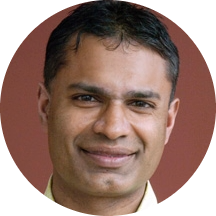
Dipak Panigrahy
Dana Farber/Harvard Cancer Centre
Dr. Panigrahy was accepted into medical school at Boston University at age 17. He trained in surgery with Dr. Roger Jenkins, who performed the first liver transplant in New England. Over the past decade, Dr. Panigrahy led angiogenesis and cancer animal modeling in the Judah Folkman laboratory. Dr. Panigrahy joined the Beth Israel Deaconess Medical Center in 2013, and in 2014 was appointed Assistant Professor of Pathology and currently has a laboratory in the Center for Vascular Biology Research.
Dr. Panigrahy was accepted into medical school at Boston University at age 17. He trained in surgery with Dr. Roger Jenkins, who performed the first liver transplant in New England. Over the past decade, Dr. Panigrahy led angiogenesis and cancer animal modeling in the Judah Folkman laboratory. Dr. Panigrahy joined the Beth Israel Deaconess Medical Center in 2013, and in 2014 was appointed Assistant Professor of Pathology and currently has a laboratory in the Center for Vascular Biology Research.
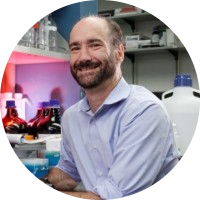
Michael Snyder
Stanford University
Dr. Snyder received his Ph.D. training at the California Institute of Technology and carried out postdoctoral training at Stanford University. He is a leader in the field of functional genomics and proteomics, and one of the major participants of the ENCODE project.
1977 B.A, Chemistry and Biology, University of Rochester, NY 1978-1982 Ph.D. California Institute of Technology, CA Advisor: Dr. Norman Davidson 1982-1986 Postdoctoral Research Stanford University School of Medicine, CA Advisor: Dr. Ronald Davis 1986-2009 Faculty Dept of Molecular, Cellular and Developmental Biology, Yale University, New Haven, CT 2009-present Dept of Genetics, Stanford University School of Medicine, Stanford, CA
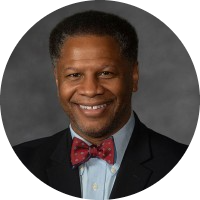
Robert Winn
Director at VCU Massey Comprehensive Cancer Center
As the Director of VCU Massey Comprehensive Cancer Center, I establish the center's vision and mission and oversee all initiatives, research, training and clinical activities. As a pulmonologist and physician-scientist, my research centers on lung cancer, health disparities and community-based health care. I am committed to developing methods to eliminate health disparities, and I will continue to focus my efforts to empower underserved patient populations, improve health care delivery and ensure equal access to cutting-edge medical treatments.
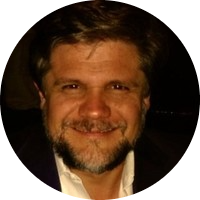
Julio A. Aguirre-Ghiso
Albert Einstein College of Medicine
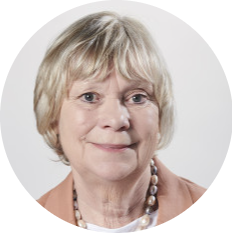
Frances Balkwill
Queen Mary University London
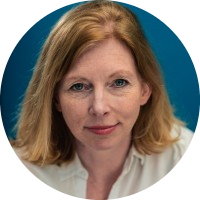
Sarah Blagden
University of Oxford
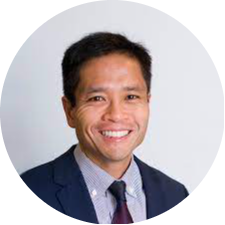
Andy Chan
Harvard University
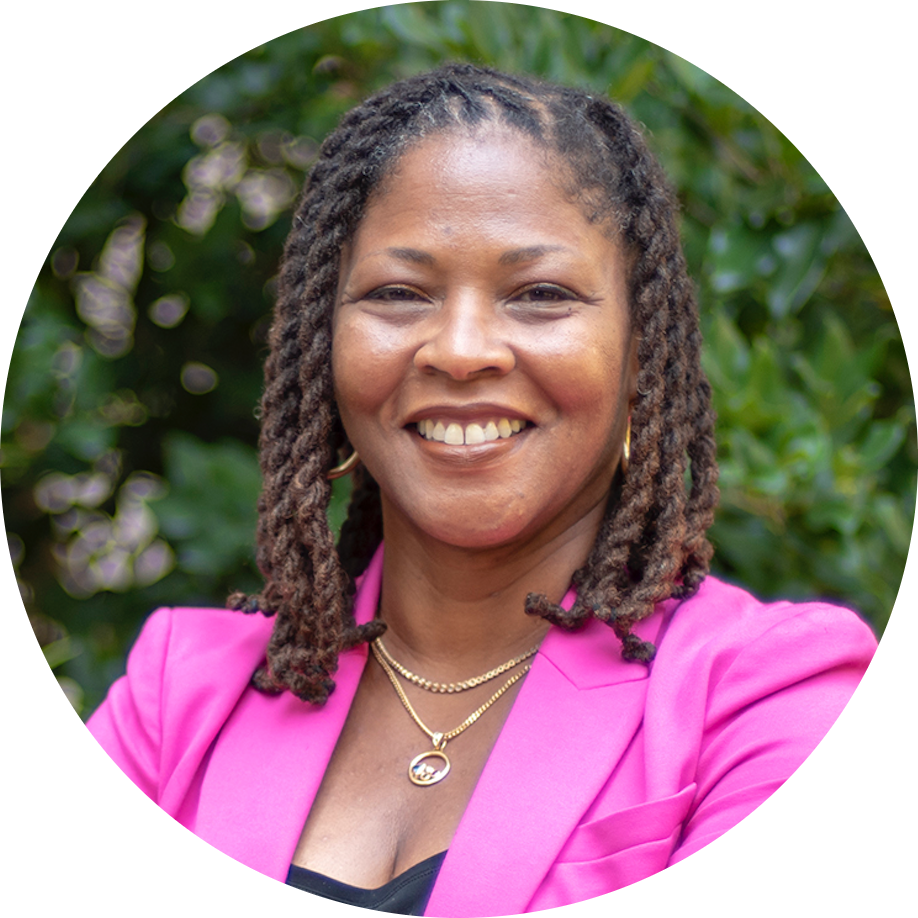
Chanita Hughes Halbert
USC Norris Comprehensive Cancer Center
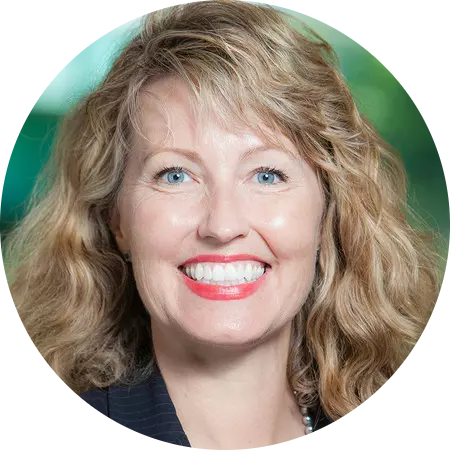
Catriona Jamieson
University of California San Diego
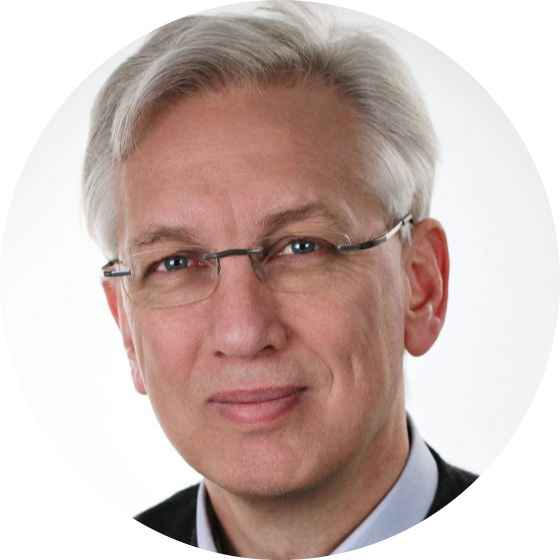
Rudolf Kaaks
DKFZ German Cancer Research Centre
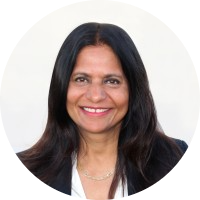
Sapna Syngal
Dana Farber Cancer Institute
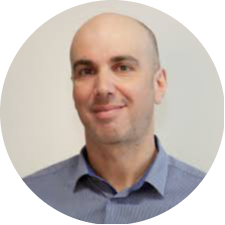
Salvatore Vaccarella
International Agency for Research on Cancer
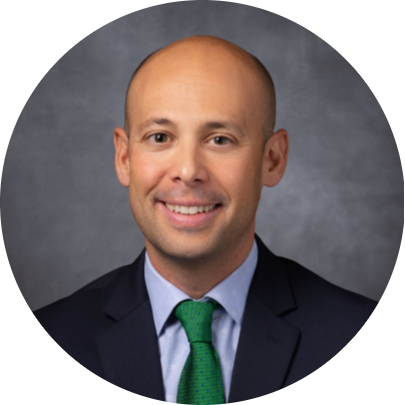
Eduardo Vilar-Sanchez
MD Anderson
Resources
Please review these important documents before the event, and reference them anytime!
Preview Document
Frequently Asked Questions
You've got questions...we've got answers!
Early bird - by April 12, 2024
Industry delegates- $750
Academic/Clinician/Not for Profit- $350
Student/Post-Doc/Fellow- $250
Regular Pricing - after April 12, 2024
Industry delegates- $900
Academic/Clinician/Not for Profit- $450
Student/Post-Doc/Fellow- $350
The dress code for the event is business casual. ACS branded apparel is encouraged! And because hotel meeting rooms can be chilly, a light sweater is also a great idea.
The health and safety of all our guests and participants is our number one goal. Please see below for important details which will continue to be updated based on our unique needs and review the COVID-19 Waiver. If you are feeling sick or have been recently exposed to someone who recently tested positive for COVID-19, you should stay home. People who have underlying health conditions or taking medications that weaken the immune system, should talk to their healthcare provider before attending large gatherings.
RECOGNIZE COVID-19 SYMPTOMS
The CDC has identified the symptoms of a COVID-19 infection. If you have one or more of these symptoms on the day of the event, please stay home. If you are waiting for COVID-19 test results or have had close contact with a person who has tested positive for or who has COVID-19 symptoms, please stay home unless you get a negative test result before the event.
YOUR SAFETY IS OUR NUMBER ONE PRIORITY
The COVID-19 virus and its variants are highly contagious. Some people infected with these viruses get severely ill, become hospitalized or die. Event attendees acknowledge the risk of exposure to the COVID-19 virus, assume all such risk, and the American Cancer Society, Inc., shall not be held liable.
PROTECT OUR COMMUNITY
Help protect our community. It is strongly encouraged that individual attendees are vaccinated. The wearing of face masks at the event will follow local guidelines. Please report to your staff partner if you later contract COVID-19 and believe you could have received or spread the virus at the event.
COVID-19 INFORMATION HUB
Take a moment to review the information hub as you prepare to travel. BCD Travel’s COVID-19 Information Hub (health & safety FAQs).
The American Cancer Society (ACS) has a partnership with Lyft to provide ground transportation to attendees. Please check with your ACS meeting stakeholder for details on how to use Lyft.
Beginning May 7, 2025, every air traveler 18 years of age and older will need a REAL ID-compliant driver’s license, state-issued enhanced driver’s license, or another acceptable form of ID to fly within the United States. For information by state, visit the Department of Homeland Security’s REAL ID website and click your state on the map.
If you have questions about the event, the event planner contact information is listed at the bottom of the page.
Attendees wishing to cancel their place can receive a full refund of their admission ticket up to 10 working days before the event start date. All cancellations must be made in writing to [email protected] before 1 JUNE 2024. Any cancellations received after this date, will not be refunded. Attendees can send a replacement free of charge.
Cancer Research UK is not liable for any travel or accommodation costs relating to attendee bookings.
Location Map
Address: 110 Huntington Avenue, Boston, MA, USA
Register

